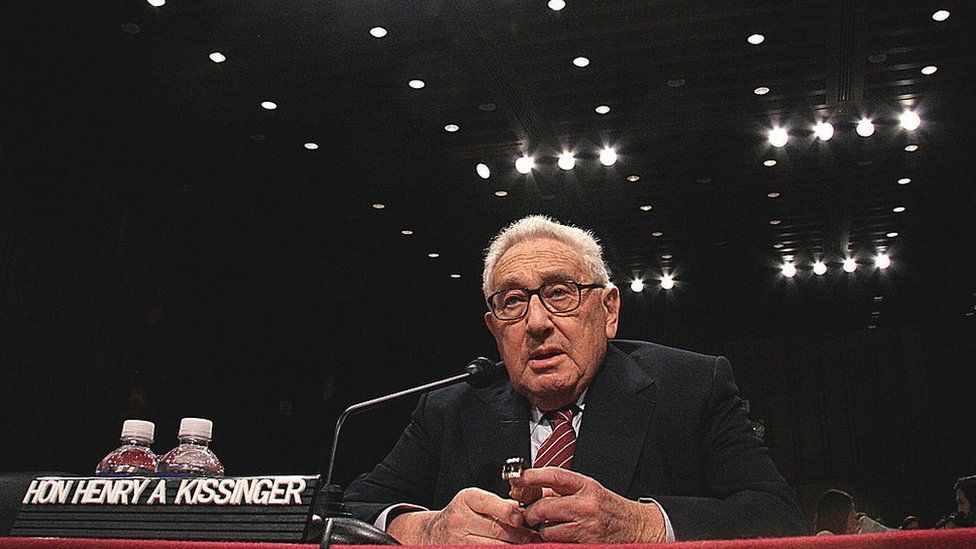-

-
-
Loading

Loading

When news of Henry Kissinger's death broke, former world leaders paid tribute to him, highlighting his expertise in foreign affairs. George W Bush described him as one of the most reliable voices on global matters, while Tony Blair praised his diplomatic skills and dedication to protecting the free world. Boris Johnson referred to him as a towering figure in diplomacy, strategy, and peace-making. However, in Cambodia, Kissinger is not seen as a peacemaker. During the Vietnam War, he and Richard Nixon ordered secret bombings in Cambodia to target Viet Cong forces. The US dropped over 2 million tons of bombs on the country, possibly making Cambodia the most heavily bombed nation in history. The bombing raids resulted in significant civilian casualties and the destruction of villages. The bombings also had long-lasting consequences, as unexploded American bombs continued to harm and kill people for years. Moreover, it is believed that Kissinger's bombing campaign indirectly contributed to the rise of the Khmer Rouge and the subsequent genocide that claimed the lives of approximately 1.7 million people. Kissinger defended the bombings, claiming they targeted North Vietnamese forces in Cambodia's border regions rather than the country itself. However, eyewitness accounts and evidence contradict this claim. Many Cambodians who experienced the bombings firsthand harbor deep resentment towards Kissinger and the US. Critics argue that the bombings were not only imprecise but also had a devastating and lasting impact on Cambodia.